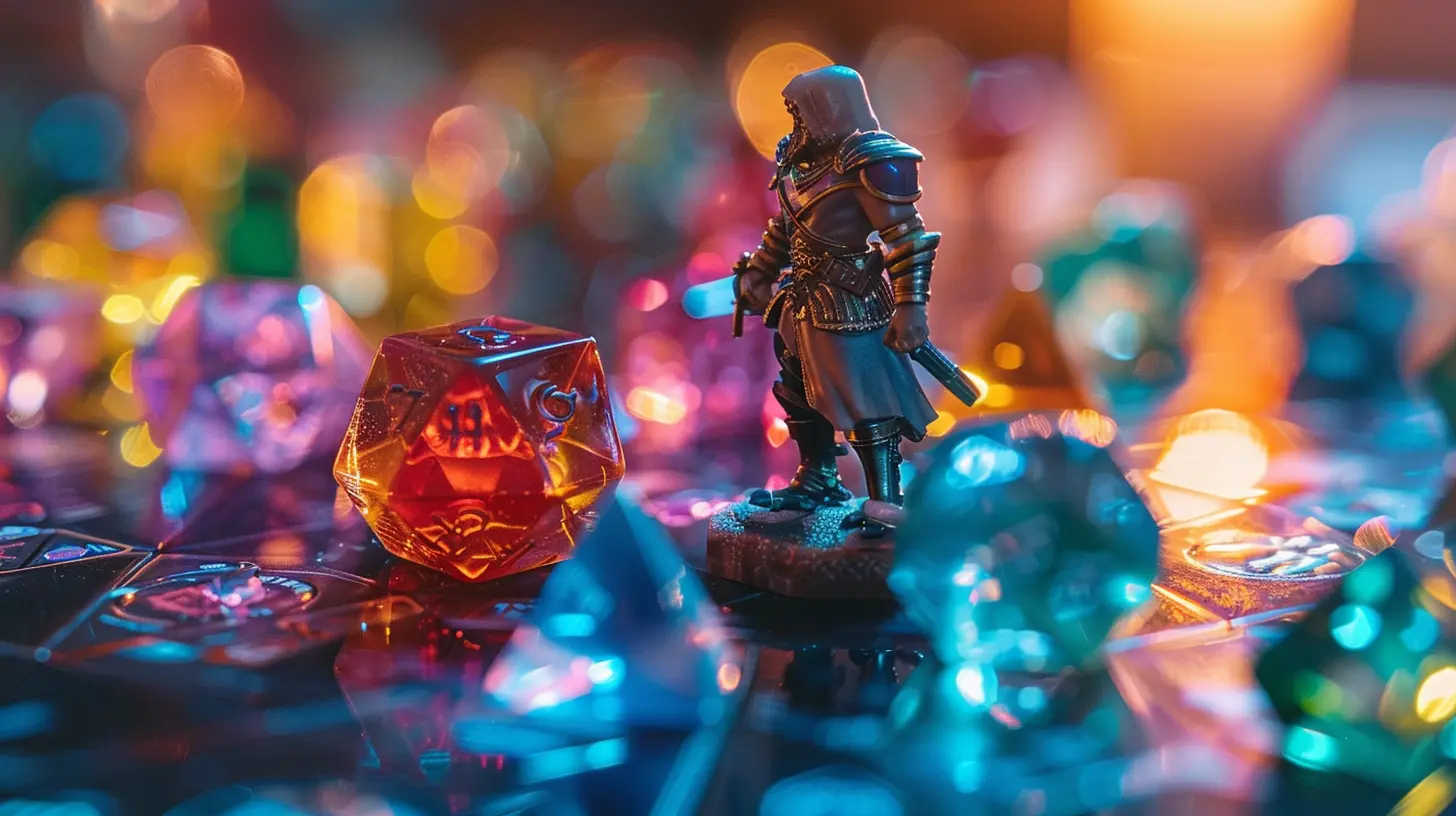Mastering Complex Board Games: A Strategy Guide
27 October 2025
Alright, let’s be real—if you’ve ever sat down to play a complex board game, you probably know they can be absolutely mind-boggling at first. Between the rulebook that reads like a legal document and the sheer number of pieces on the table, it's easy to feel overwhelmed. But don’t worry—I’ve been there. With the right mindset and some solid strategies, even the most intricate board games can transform from daunting to downright thrilling.
This guide will break it all down for you. Whether you’re gearing up for your first match of Twilight Imperium, getting crushed in Terraforming Mars, or trying to decode the madness of Gloomhaven, I’ve got your back. Let’s dive in and get you from “Wait, what does this card do again?” to “Boom, I WIN!”
Why Complex Board Games Are Worth the Trouble
Let’s address the elephant on the board. Why should you even bother with complex games when there are plenty of lighter, faster options out there? Well, here’s the thing—complex board games are like puzzles, but on steroids. They’re rewards for people who love diving deep into strategy, competition, and creativity.These games challenge the brain in ways that simpler ones just can’t. You’re not just rolling dice and hoping for the best. You’re strategizing, adapting, and thinking three moves ahead, all while keeping an eye on what everyone else at the table is up to. And when you finally figure everything out and pull off a brilliant play? That’s the kind of dopamine hit that just hits different.
Also, let’s not forget the social aspect. Nothing tests relationships (in the best way) like a marathon session of Arkham Horror or a heated negotiation in Diplomacy. Complex games bring people together, spark conversations, and make for some unforgettable memories.
Step 1: Start by Learning the Basics
When it comes to mastering complex board games, the first step is to not freak out. Seriously. Everyone feels like a noob when they’re starting a new game. That’s normal.Read the Rulebook (But Don’t Panic)
The rulebook is your starting point, even if it seems like it’s written in another language. Don’t expect to memorize everything on your first read-through. Instead, skim the rules to get a sense of the game’s objective, flow, and key mechanics. Usually, there are reference sheets or quick-start guides that distill the rules. Use those—they’re lifesavers.And here’s a pro tip: YouTube is your friend. There are tons of content creators who break down games in video tutorials. Watching someone play while they explain the rules can make everything click much faster than trying to figure it out alone.
Play a Practice Round
Before diving into a full game, gather your group and play a practice round. Nobody’s keeping score—this is just to get a feel for how the game works. Move some pieces, draw some cards, and see how the mechanics fit together. It’s like stretching before a workout. You’ll thank yourself later.
Step 2: Develop a Winning Strategy
Complex games are all about strategy, and no, I’m not just talking about the “big picture” stuff. The devil’s in the details, my friend. Here’s how to get your strategic brain in gear.Know Your Goal
This might sound obvious, but you’d be surprised how many people get so caught up in side quests or upgrades that they forget what actually wins the game. Is it earning the most points? Conquering a certain area? Building the longest space station? Keep your eye on the prize and make every turn count toward your objective.Adapt to the Board State
Plans only go so far. If you tunnel-vision on one strategy without paying attention to how the game evolves, you’re going to have a bad time. Stay flexible. If another player blocks your path or changes the dynamic of the game, shift gears and find a new route. Think of it like driving—sometimes you have to take a detour, but the destination stays the same.Be Aware of Other Players
Remember, you’re not playing alone. (Unless, of course, it’s a solo game—but that’s a whole other story.) Your opponents are constantly making decisions that affect your game. Pay attention to their strategies and adjust yours accordingly. Are they hoarding resources? Sneaking toward a victory condition? Sometimes, stopping someone else’s plan is just as important as advancing your own.
Step 3: Tactics for Specific Types of Board Games
Not all complex games are created equal. Eurogames, war games, cooperative games—they all require slightly different approaches. Here’s a quick breakdown to help you tailor your strategy.Eurogames
Ah, Eurogames—the land of resource management, point-salad scoring, and minimal player interaction. In games like Catan or Agricola, efficiency is king. Focus on optimizing your actions and building an engine that generates resources or points consistently. And don’t forget to adapt if someone snags the resources or spaces you need. Flexibility is key.War Games
If you’re playing something like Risk, Axis & Allies, or Twilight Struggle, you’re in for some head-to-head competition. These games thrive on area control, alliances, and betrayal. The best advice here? Don’t be predictable. Make bold moves, but don’t overextend yourself—nothing’s worse than spreading your forces too thin and watching your empire crumble.Cooperative Games
Co-op games like Pandemic or Spirit Island require teamwork and communication. Talk to your teammates often and share your thought process. Cooperative games are less about personal glory and more about working together to find the best solution. If you’re the “alpha player” type, resist the urge to micromanage. Let everyone contribute and trust your team.Step 4: Practice, Practice, Practice
Let’s face it—nobody becomes a master strategist overnight. The more you play a game, the better you’ll get at understanding its nuances. Patterns and strategies will start to emerge. Memorizing card decks, learning optimal opening moves, and anticipating opponents’ actions will come naturally over time. Be patient with yourself, enjoy the learning process, and don’t be afraid to lose. Every defeat is a step closer to mastery.Final Thoughts: Make It Fun
At the end of the day, board games are all about having fun. Mastering a complex game doesn’t mean taking it too seriously or turning every session into a high-stakes competition. Laugh at your mistakes, celebrate your victories, and enjoy the ride. The beauty of these games lies in their rich depth, the stories they create, and the memories they leave behind.So, grab your favorite snack, call up your gaming group, and crack open that intimidating box. You’ve got this. Just remember—if all else fails, blame the dice.
all images in this post were generated using AI tools
Category:
Tabletop GamesAuthor:

Lana Johnson
Discussion
rate this article
1 comments
Ethan Webster
Embrace patience; mastery comes with practice and strategic thinking.
November 2, 2025 at 5:11 AM

Lana Johnson
Absolutely! Patience and strategic practice are key to mastering complex board games. Happy gaming!


